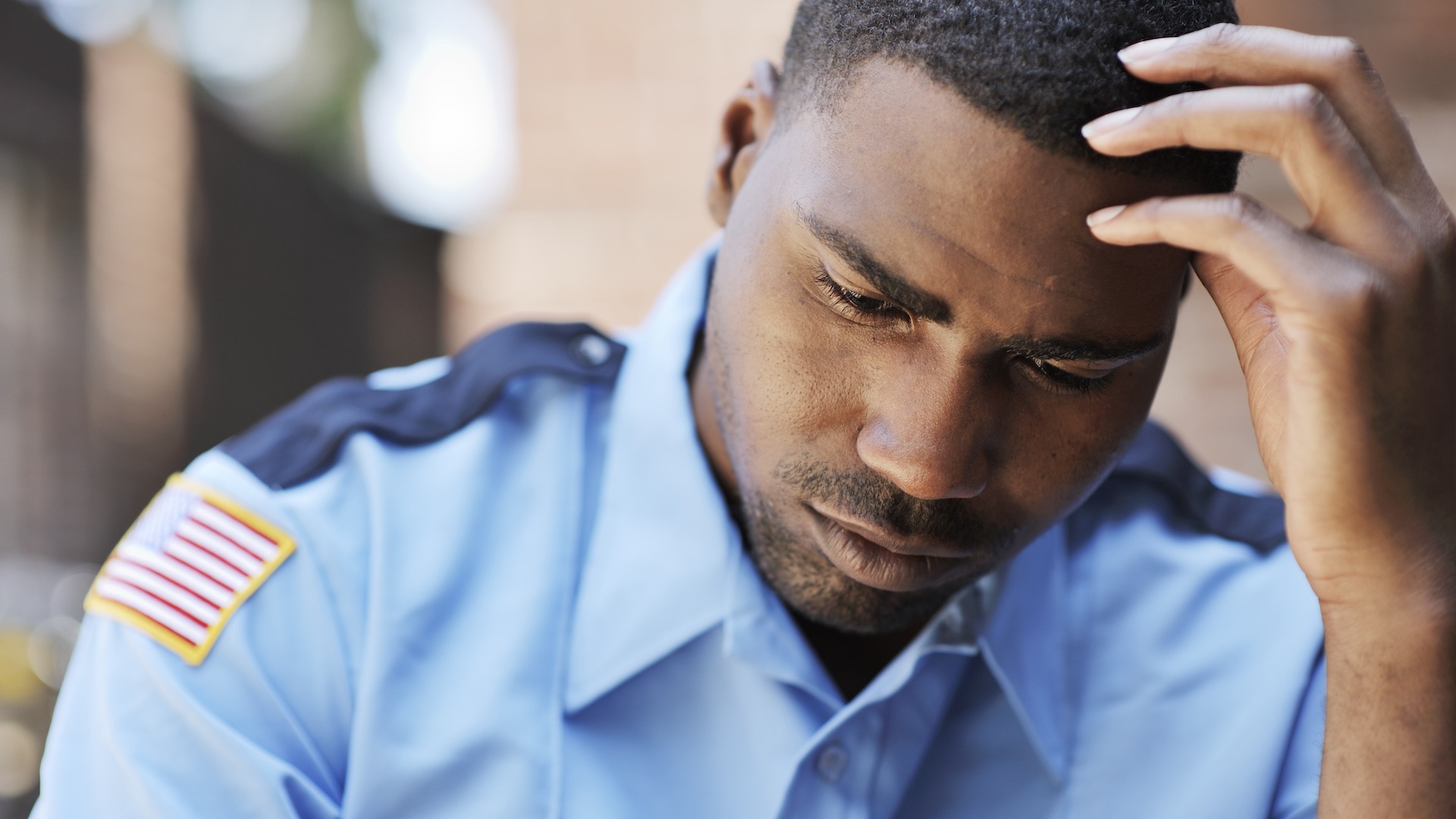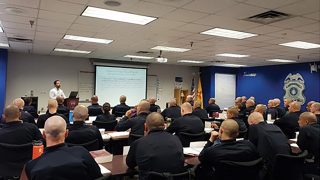
Being a police officer was already a stressful job due to its dangerous nature and the traumatic scenes officers frequently encounter, but the past year may have taken a greater toll than usual.
According to WTTW News, mental health professionals say that the events of last year – such as the civil unrest, negative attitudes towards policing, and the COVID-19 pandemic – have only exacerbated the decline of mental health in law enforcement.
Former officer and current mental health professional Kimberly Marshall is familiar with the rigors of the job. As a Chicago police officer for 20 years, she witnessed some dark things, including one incident she never forgot of a kid being thrown out a window for refusing to steal candy.
“The kids that you see here, they stay with you the most,” Marshall said. “Everyone says that you can’t describe the horror and the nightmares and the feeling of not being as useful as you can be knowing that it’s out of your hands.”
Marshall believes that being a police officer now has added even more stress.
“The way this country feels about the police, I would be a wreck every time I went to knock on someone’s door because they don’t want you,” Marshall said. “They’re very upset. They’re very angry.”
Clinicians treating police officers say that they have full caseloads, suggesting a high demand for treatment, but that there is still a stigma around seeking treatment.
Carrie Steiner, a former Chicago police officer for 13 years, opened the First Responders Wellness Center after leaving the department to support the mental well-being of first responders and their families’ well-being.
Steiner said that the impact of last year on policing has tanked morale to all-time-lows.
“There are a lot of officers that are really questioning now, staying in this field, or, you know, trying to think about when can I quit? Or when’s the earliest I can retire. I’ve never seen that since I’ve been doing this as much as in the last year,” she said.
The mental health struggles of officers often go unheeded, whether due to a lack of mental health resources or cultural stigma, and can lead to tragic outcomes such as suicide.
Blue H.E.L.P., a nonprofit that tracks police suicides in the U.S., found that 57 current and retired officers have died by suicide so far this year. In 2020, there were 172 suicide victims, and in 2019, there were 238.
The CPD is one of the agencies hardest hit by suicides. In March 2021, two Chicago police officers committed suicide, at an agency where the suicide rate has been clocked at 60% above the national average in law enforcement.
Robert Sobo, the director of CPD’s counselling division, said that addressing suicide is a top priority for mental health in law enforcement, and generating awareness is key.
“Suicide is still a big problem, and in the United States alone, suicide is up about 28%, nationally. But suicide awareness and suicide prevention is about the comprehensive programs to deal with stress, depression and trauma, before an officer gets to the point of being suicidal.”
The Employee Assistance Program, which Sobo says is the most robust in the nation, offers mental health services to current and former officers and their families.
The program has 13 clinicians, six drug and alcohol counselors, and around 200 rank-and-file members offering peer support. Despite significant mental health resources, it may not be enough according to Sobo.
“Given the fact that the 13 of us — and all of us at EAP, in general — have an enormous case load, if we had more, we would just be serving more people because the demand for services is there,” Sobo said.
After the latest suicides in the department, CPD hired Alexa James, CEO of the National Alliance of Mental Illness Chicago, as senior advisor of wellness.
“Our response is this: if we just focus on the suicides, we are missing tens of thousands of people who work here daily and are in pain, and they are tired, and they don’t feel seen and heard,” James said.
Her goal is to change the department’s culture to create a more mentally supportive environment focused on the prevention of psychological trauma through training, trauma briefings, and re-evaluating working conditions such as cancelled days off or working overtime.
“What are we doing to eliminate triggers, challenges, and really examine policies that indirectly or directly harm officers,” James said.





